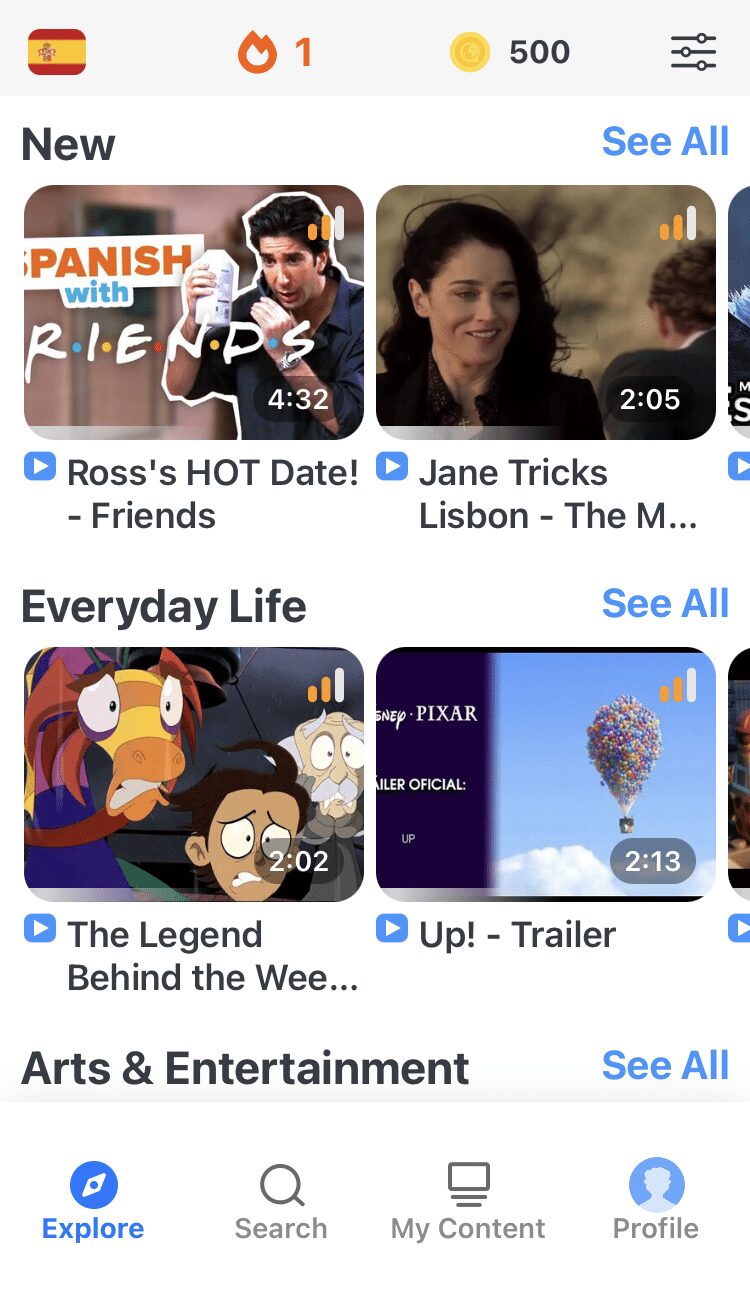How to Write in a Foreign Language at Any Level

Whether you’re posting on social media, taking a language test or writing a corporate email, writing well is an essential part of learning any language. Because of the lack of body language, gestures and context, you must be direct and clear in your written communication.
Writing eloquently is indeed hard for a non-native speaker of a language since there’s no room to hide behind mumbled errors. But no matter where you are in your language journey, this guide covers all the steps and tips needed to develop this skill.
Download: This blog post is available as a convenient and portable PDF that you can take anywhere. Click here to get a copy. (Download)
General Tips to Improve Writing Overall
Learning to write in a foreign language isn’t that different from learning to write in your native language. In most cases, the difference is that you have to be more self-motivated rather than relying on teachers to catch your mistakes. But the same habits that make you a good writer in your native language will help you be a better writer in your target language.
Read in your target language. Children who read have better language skills and language learners who read in their target language have better language skills—especially writing. Even if you’re reading a romance novel in your target language and skimming over anything you don’t understand, the increased exposure to the written language will help you develop better writing skills.
Get corrections on your writing. You can get corrections on your writing on sites like Lang-8 or with a private tutor—just make sure they give you written homework, provide corrections and explain any mistakes. Afterwards, rewrite the text with corrections to help you internalize and practice the correct grammar, vocabulary and style in your target language.
Pay lots of attention to grammar. There’s no way to hide poor grammar when you write—everything is black and white on the page. So becoming a better writer means a complete grasp of grammar rules.
5 Steps to Learn Writing as a Beginner
1. Learn the Rules
Your first step as a beginner is to learn the building blocks of your target language’s writing system.
If the language has an alphabet (most do), that means both mastering the alphabet and learning spelling rules. Note that even if you’re learning a language that uses the Latin alphabet, you’ll still have to learn some new letters, accents and pronunciations.
If you’re learning French, for example, you’ll need to master the accent marks and to know when a c should be written with a cédille (ç).
If you’re learning Chinese or another language that uses characters, focus on learning both basic, common characters and the building blocks of those characters (radicals).
2. Master Basic Grammar
When you’re a beginner, it’s easy to feel like the grammar rules you’re learning are boring and stuffy. But this stage is all about foundation building—it might not be super interesting, but it’s extremely important.
Take all of your grammar lessons very seriously. You should also make sure you do grammar exercises—which count as writing practice—and get corrections to make sure you internalize and master grammar concepts as they are taught.
3. Focus on Correct Sentences
When you’re a beginner, don’t try to write out huge compositions. Focus on writing simple sentences, and write them correctly. Grammar exercises are a great example of a writing exercise for beginners. Don’t get caught up in the quantity of writing you’re doing.
At most, your compositions should be about a paragraph long. At the beginner level, it’s better to focus your energy on doing a little well than doing a lot poorly.
4. Keep Subjects Simple
As a beginner, don’t focus on writing complex tales using constructions you don’t really understand. Beginner vocabulary and grammar concepts are generally very descriptive and concrete.
The nouns you’re learning are the kinds of things that you can point to or hold in your hand rather than abstract concepts. The grammar you’ve learned will be similarly concrete.
Here are some subjects that are well-suited for beginners’ writing:
- Descriptions of your family, your home, your bedroom or your hometown
- Descriptions of your routines—how you spend the weekend, what you do at work, how you make dinner
- Descriptions of what you did during the past day, weekend or on your last vacation
The bottom line is that you shouldn’t be trying to argue about the meaning of life—just focus on writing about simple subjects and doing so correctly.
5. Write Longhand
If you’re like most people, you probably do most of your writing on the computer—in your native language or any other language. Your computer probably double-checks your spelling and might even have a grammar check as well.
If you’re learning a character language like Chinese, the experience of writing on the computer is substantially different (easier) than writing longhand. The only way to get good at writing—and to build a really solid foundation—is to practice writing by hand. Here are some things you can write out by hand:
- Diary entries
- Shopping lists
- Reminders
Remember, though—if you really want to master writing, you need to be not just writing for yourself, but getting corrections on your work. So don’t write anything so personal that you won’t be willing to share with a teacher!
5 Steps to Improve Writing as an Intermediate Learner
1. Move to More Complex Subject Matter
At the intermediate level, you should start writing about more complicated subjects that require more advanced vocabulary and grammar.
Current events are a great subject to practice with because there’s always something going on! Other foreign language writing prompts include personal experiences or plans for the future.
If you’re struggling to find subjects to write about, then check out native authentic media such as TV shows, movies, newspapers and so forth. They can readily provide you with language practice as well as engaging ideas for what you can discuss.
Another option is the language learning program FluentU.
FluentU takes authentic videos—like music videos, movie trailers, news and inspiring talks—and turns them into personalized language learning lessons.
You can try FluentU for free for 2 weeks. Check out the website or download the iOS app or Android app.
P.S. Click here to take advantage of our current sale! (Expires at the end of this month.)
2. Write Longer Texts
At the intermediate level, you should be trying to write more than a few sentences. Do at least some writing that hits the 500-word mark.
You should also start thinking about more than just whether or not each individual sentence is grammatically correct—make sure that you can write a coherent paragraph with sentences that relate to each other and flow correctly. This means learning to use pronouns appropriately and learning the phrases your target language uses to refer back to ideas that have already been mentioned.
3. Start Typing
Once you’ve established a strong foundation by writing longhand, you should move to typing.
You’ll need to change your keyboard to your target language. If your target language is Arabic, Russian or another language that doesn’t use the Latin alphabet, I would recommend getting keyboard stickers as well.
Typing well involves a lot of practice and is like learning a manual language, so it will take practice to get to the point where you can type as fast in your target language as in your native language. Using the computer opens up a huge number of opportunities for writing in your target language, such as:
- Using social media. Pay attention to which social media platforms are used by speakers of your target language. If you’re learning Russian, for example, set up a VKontakte profile. If you’re learning Chinese, a Weibo account is a must.
- Commenting on blog posts. Reading blogs in your target language is a good way to get in plenty of reading practice, and participating in the online discussion is excellent writing practice.
- Utilizing relevant apps. Other apps that have a written component, ranging from dating apps to weight loss apps that force you to write updates.
4. Learn Specialized Writing Styles
Writing well, like speaking well, requires using the correct phrases, vocabulary and style for the circumstance. Different types of writing require radically different types of vocabulary and often have their own set of phrases and formats that are quite different.
Using the correct greeting is remarkably important if you’re sending someone an email or letter. Here are some types of writing that most likely have specific formats that you should learn:
- Emails
- Letters, both formal and informal
- Cover letters and resumes
- Internet slang
- Other types of writing, depending on your goals as a language learner, might include academic papers, news articles, reports or scripts.
You’ll also want to learn set phrases like “once upon a time.”
5. Write Summaries
One of the best ways to practice writing is to summarize—in your own words—things that you read in your target language.
This type of exercise is ideal for writing something that can be corrected by a language exchange partner, teacher or tutor (remember you want to get corrections on at least some writing, and you’re less likely to be corrected on your social media posts).
The goal is to use the reading material as a way to learn new vocabulary and sentence structures and then to summarize the pieces—without referring to the original—so that the vocabulary and turn of phrases are internalized. Basing your writing on something you’ve read also eliminates the need to come up with a subject, which is surprisingly difficult when facing a blank page.
5 Steps to Master Writing as an Advanced Learner
1. Write for Publication
Want to become a really good writer? Make sure that your work is publicly available. The idea of a stranger reading your work is a powerful motivator to get it right. This doesn’t mean that you have to become a full-time writer in your target language (although there are certainly writers who write in a language that isn’t their native language), just that you should seek out opportunities to publish works of writing. Here’s a couple of ideas:
- Start a blog in your target language
- Guest post on other blogs in your target language (especially if you don’t want to commit to blogging yourself)
- Write a letter to the editor of a newspaper or magazine in your target language
- Submit a professional paper at a conference related to your profession.
2. Practice Different Types of Writing
At an advanced level, you’re working on more than learning set phrases used in writing. Instead, you want to master different types of writing.
There are surprising cultural differences in some types of writing—I had a French professor insist that an essay must be five paragraphs and had to adhere to a very strict format to be correct. Here are some of the types of writing you’ll want to work on as an advanced learner:
- Persuasive essays
- Narratives of different lengths
- Correspondence
- Professional writing like reports and memos
3. Retell Stories in Your Target Language
Retelling stories (or other kinds of writing, depending on what type of writing you’re working on) is a great way to practice.
You read a piece of writing (of a manageable length, probably between 1,000 and 2,000 words), put the original aside and then try to replicate the piece of writing on your own. This exercise will both help you overcome writer’s block and teach you new vocabulary.
Retelling stories is a good way to internalize the turns of phrase, vocabulary and sentence structure that native speakers of your target language use in their writing.
4. Pay Attention to Style
You’ve moved beyond merely avoiding gross errors in your writing—so now it’s time to care about whether or not your writing sounds decent. This means varying your word choice by using synonyms and sentence structures that aren’t only correct but also sound good to a native speaker of your target language.
5. Continue Getting Corrections
Once you get to an advanced level, it’s easy to assume that you don’t need any more instruction. But if you really want to master writing, you need to continue getting corrections on your written work—indefinitely. It doesn’t have to be on every piece of written work you produce, but periodic corrections will help you continue improving your writing.
To sum up, the three major components for building your writing skills include reading a lot, writing a lot and getting your writing corrected. If you can do those three things, you’ll see your writing ability increase until you can genuinely consider yourself a master!
Download: This blog post is available as a convenient and portable PDF that you can take anywhere. Click here to get a copy. (Download)
And One More Thing...
If you dig the idea of learning on your own time from the comfort of your smart device with real-life authentic language content, you'll love using FluentU.
With FluentU, you'll learn real languages—as they're spoken by native speakers. FluentU has a wide variety of videos as you can see here:
FluentU has interactive captions that let you tap on any word to see an image, definition, audio and useful examples. Now native language content is within reach with interactive transcripts.
Didn't catch something? Go back and listen again. Missed a word? Hover your mouse over the subtitles to instantly view definitions.
You can learn all the vocabulary in any video with FluentU's "learn mode." Swipe left or right to see more examples for the word you’re learning.
And FluentU always keeps track of vocabulary that you’re learning. It gives you extra practice with difficult words—and reminds you when it’s time to review what you’ve learned. You get a truly personalized experience.
Start using the FluentU website on your computer or tablet or, better yet, download the FluentU app from the iTunes or Google Play store. Click here to take advantage of our current sale! (Expires at the end of this month.)











